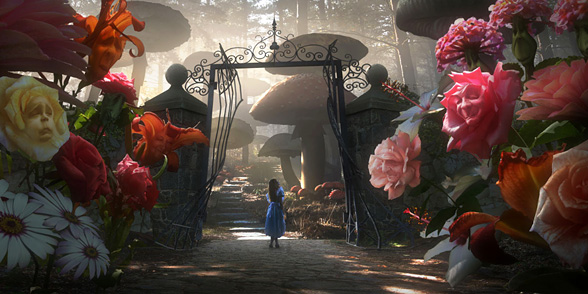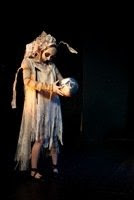Separate toilets really annoy me. They've been a pet hate of mine for years, since I was chased out of the ladies while trying to tell a girl friend of mine a story while she fixed her make-up back in high school. They are the last bastion of apartheid - segregating people in exactly the same meaningless way as having whites only entrances. The fact that no one has noticed this means there's either a male conspiracy afoot to relegate queueing to women only, or women are paranoid that unisex toilets would become iniquitous dens of sex and sin.
But I get that the world moves slowly. The kind of blunt compartmentalising of people that characterised apartheid and nationalism and feminism and marketing is giving way to an enlightened view of human nature. The digital era is making crude generalisations obsolete. Media channels are fragmenting to an almost individual level, people are forming communities based on interest and passion rather than geography, and marketers are realising that it's better to speak to people when they are interested in you. Demographic and psychographic profiling is all well and good, but most of your messages will miss their target, unless you're targeting those who are searching, seeking, speaking about your product.
In short, the age of demographics is over. Why bother trying to predict behaviour based on crude generalisations about groups of people? People choose what groups are meaningful to them, and they may be nothing like the groups you think they belong to. Now you can track actual behaviour of individuals online. It's increasingly obvious that our identities are not about "who we are", but rather, "what we do". We're free to be ourselves, to define ourselves by our actions and interests, and not be boxed in by descriptors.
And is it really fair, in the age of the empowered individual, to tell us where to pee or who we're allowed to converse with at the basin?
Hurtling headlong into the future - art, politics, love, branding, environmentalism & everything in between
Sunday, November 29, 2009
Tuesday, November 24, 2009
A beautiful mind (over sushi)
Last night I went for dinner with a friend of mine who is so ridiculously intelligent, witty and erudite it makes me feel like I'm living in a Cinema Nouveau subtitled art movie set in Paris in the inter war years every time I see him. He brings up things like Stoicism's contribution to early Christianity while you ask him to pass you the soy sauce, an apparently obvious continuation of the conversation we had been having about Freudian psychology and the reasons for being attracted to people who make us unhappy. It's a wild ride. It's never a monologue and it's always funny. You can't sit back and mention the banalities of everyday life for fear of the disappointment in his face. There is no relief; it's hard to keep up, but there is no option but to up the ante and join the conversation. I usually drink heavily to relieve the pressure to be entertaining. But I always leave these high-voltage urbane mind-offs feeling oddly rejuvenated. They remind me that it's not things or events that make life interesting, it's our reaction to them. The external world is just a series of events: our minds and our decisions and our creative narrative are what bring the magic. Being bored just means you're being lazy.
Saturday, November 14, 2009
Quack
I have to be honest, I had no idea what to expect when my friend Jayne told me about the show she was in (and she was cunningly short on detail). Theatre for the deaf? Seriously? Was that miming and sign-language with big overdone facial expressions? But I'm always interested to try new things, and was feeling particularly like I needed a break from drinking and obsessing about The Break Up. So I took what I now realise was my hideously patronising attitude, and another friend, to go support.
And you know what, the piece was unbelievable. It was magical and terrifying and brilliant. It starts with a man lying dying on a hospital bed and immediately throws you into the delusions and visions he is having - the whole piece is set in his tormented dreams, or the underworld. And nothing makes it quite so underworldly as having no speech, only eerie music and garbled, nightmarish sounds - the kind you make when you're trying to scream or speak in a dream, but can't. The piece is very, very dark, and pretty freaky. Everyone is in masks (think Eyes Wide Shut but without the sex and with more soul-eating) which capture the sadness and idiosyncrasies of the individual characters perfectly. And there is some relief in the form of a fragile romance.
Quack really takes you into another world and is something truly unique and beautiful and moving. A rich experience. Thanks Jayne! And I reckon you should all go down to the Intimate Theatre on Hidding Campus and see it. (Before the 21st, or you'll miss it)
Tuesday, November 10, 2009
A Life Less Ordinary
It's probably the result of growing up with a New Ager for a mom, in a home where it was always assumed that the world was on the brink of a vast spiritual awakening. I've always believed my life would coincide with the turning point in human history; a period of great turmoil and chaos and change, but ultimately, the end of our destructive patterns and the start of a Golden Age (for those who survive the transition). It would be filled with war and plagues and the collapse of civilization as we know it. That all coincided beautifully with the predictions of ecological collapse the scientists talk of, the economic collapse we're now undergoing, the Mayan Calendar, and even pop culture and Hollywood sci-fi. A perfect symphony of logic and truth.
But what if these are all delusions of grandeur? Perhaps these fears are all the result of animal instincts for survival being cleverly played by dreamers and marketers? I was sitting on the bench press machine at gym this evening and I had the most extraordinary of thoughts: that I may in fact lead an ordinary life, in ordinary times. It was the first time I'd even contemplated that option! I pondered the approaching descent into the 2nd half of my twenties and was truly surprised to think of myself growing old and dying, like so many generations before me. No great war of good and evil.
And, as with all thoughts of mortality, I immediately felt two conflicting emotions: disappointment and relief. The first is what I'm going to have to work on: to find the extraordinary in the ordinary, and meaning in the every day details of my life.

But what if these are all delusions of grandeur? Perhaps these fears are all the result of animal instincts for survival being cleverly played by dreamers and marketers? I was sitting on the bench press machine at gym this evening and I had the most extraordinary of thoughts: that I may in fact lead an ordinary life, in ordinary times. It was the first time I'd even contemplated that option! I pondered the approaching descent into the 2nd half of my twenties and was truly surprised to think of myself growing old and dying, like so many generations before me. No great war of good and evil.
And, as with all thoughts of mortality, I immediately felt two conflicting emotions: disappointment and relief. The first is what I'm going to have to work on: to find the extraordinary in the ordinary, and meaning in the every day details of my life.

Subscribe to:
Comments (Atom)
